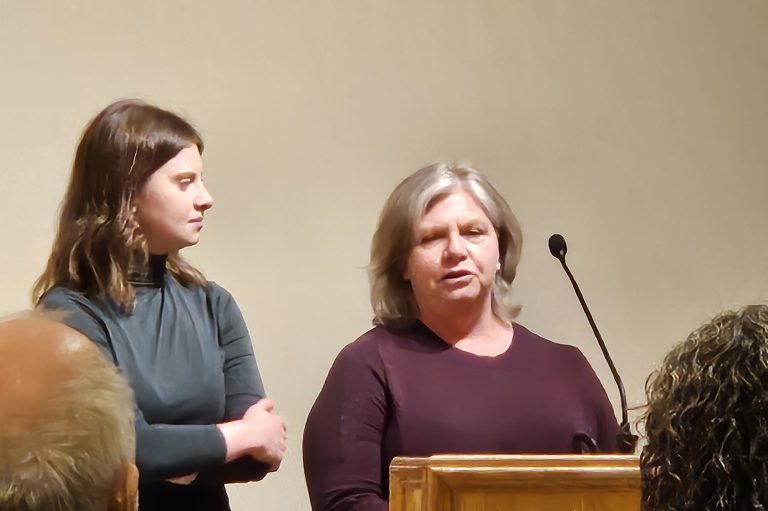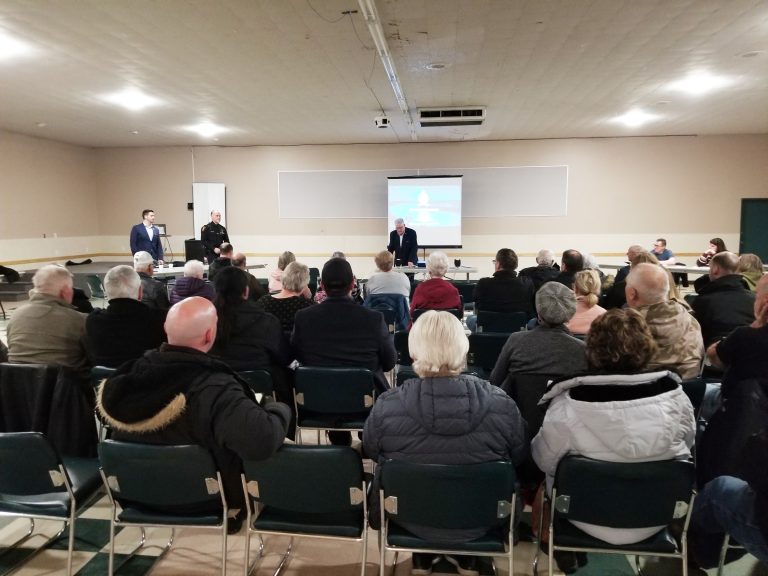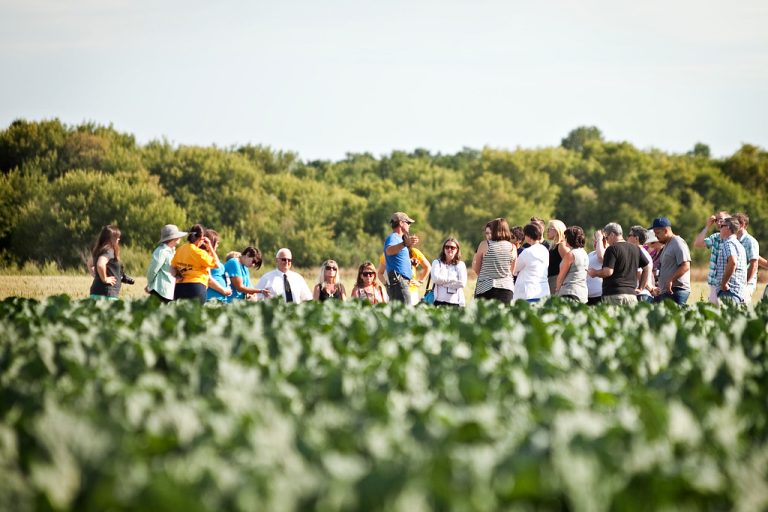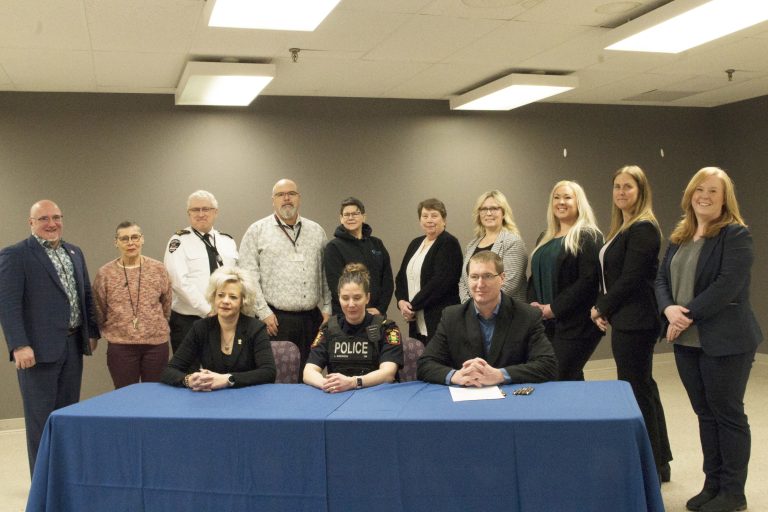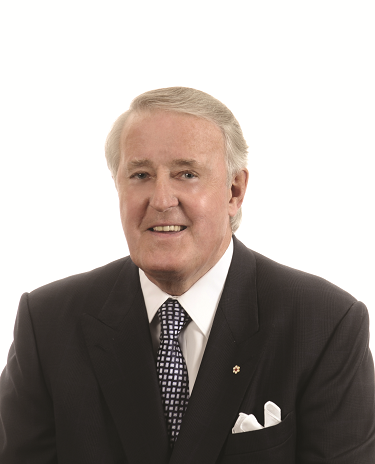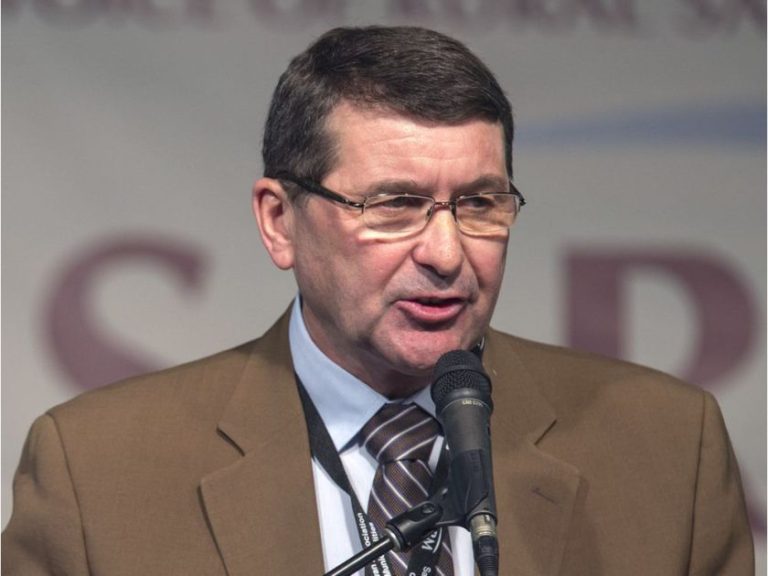The family of former Peter Ballantyne Group of Companies CEO Trevor Ives expressed their gratitude and thanks after accepting the Prince Albert Chamber of Commerce Legacy Award on Monday.
Ives passed away in 2023 after spending 25 years as the company CEO. On Monday, Ives’ wife, Shauna, said he would have been grateful to receive the award.
“Trevor would have been so proud, and we’re all proud of him,” Shauna said following Monday’s ceremony at the Chamber of Commerce Legacy Brunch. “This is such an honour. I wish he could be part of it.”
In 25 years in business the Ives’ met a lot of people and visited many new places. When Shauna looked back on those 25 years, she said it was the people who stood out the most.
“Through Trevor’s business connections, it was nice to get involved in the Aboriginal community in PA,” said Shauna, who grew up in Saskatoon.
“That was just something I really gained an appreciation for through Trevor’s career and our friends and associates in PA.”
The Ives’ daughter, Kyra, was also on hand for Monday’s award presentation. Although Kyra doesn’t plan on following her father’s footsteps into the business world, she said the lessons he taught will always be useful.
“Dad was just an exceptional role model as a father and as a person,” Kyra said. “He really instilled values of hard work and dedication into myself and my brother and the importance of community and loyalty. (I’m) definitely going to follow in his footsteps in terms of values and how he’s acted as a leader to both of us, but maybe not in the business area.”
In addition to his work in the business world, Ives was an active volunteer. He was recognized for those efforts in 2022 when he received the Queen’s Jubilee Medal award. Ives passed away on Oct. 30 at the age of 57.
Prince Albert Chamber of Commerce CEO Patty Hughes said Ives was a mainstay on the Prince Albert business scene who deserved to be recognized for his leadership.
“He was just so steadfast,” Hughes said. “He was involved in the community as well, and he just quietly did it. (He) didn’t expect any accolades to come from it.”
Barnett, Turcotte, and LeMoal nominated for Business Leader of the Year as Samuel McLeod award finalists announced
Monday’s ceremony also marked the countdown to the 33rd annual Samuel McLeod Business Awards, which will be held on April 12 in Plaza 88.
Nearly 30 businesses in 12 categories received nominations, including Lake Country Co-op, Diamond North Credit Union, and Prince Albert Memorial Gardens, River Park & Grays for Business of the Year.
Diamond North is also up for the Customer Service Award, while Lake Country is up for the Business Transformation Award. Memorial Gardens, and River Park & Grays are up for the Community Involvement Award.
Cody Barnett from the Boreal Healthcare Foundation, Marianne Turcotte from Beau “Lac” Funeral Home, and Shelley LeMoal from E.T. Flooring and Design are all nominated for Business Leader of the Year.
Aaron LeMoal from E.T. Flooring and Design, Aiden Edwards from FamJam, and Tia Furstenberg and Kayanna Wirtz from Lemon Art Studio are all up for the Young Entrepreneur Award.
PAGC Urban Services, the Rose Garden Hospice, and S.H.A.R.E. are all up for Non-Profit Organization of the Year.
–with files from Michael Oleksyn/Daily Herald

